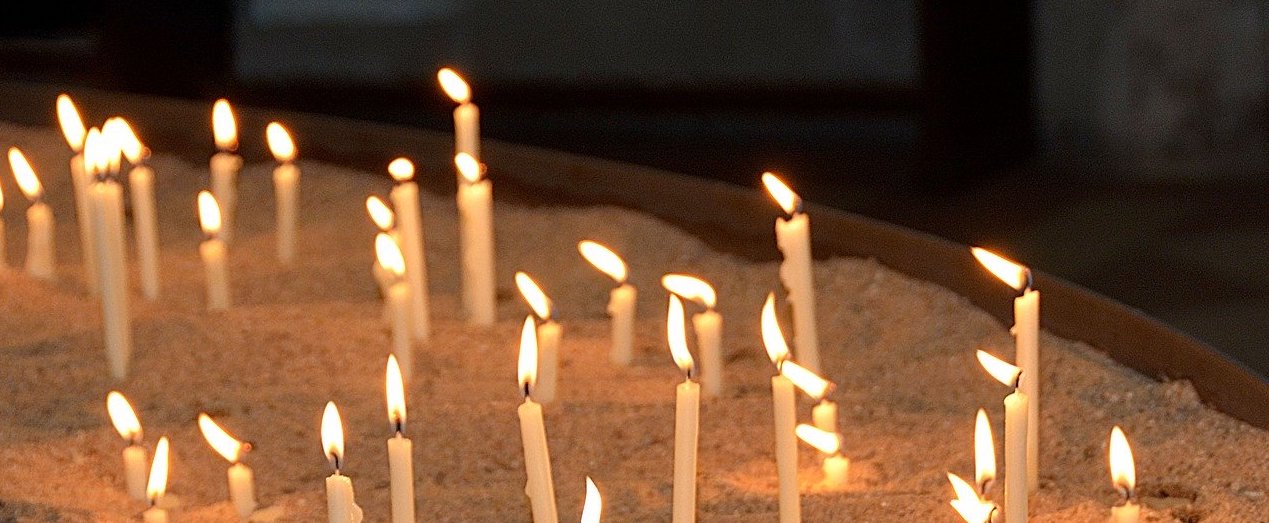
Pixabay
When the seriousness of the current pandemic began to hit me, I realised very quickly that one of the best ways I could contribute would be to pray. I want to try to take my own praying habits up a notch, and spend some extra time each day praying about the events happening in my own country and around the world, as well as friends, family and church family.
The only problem is, I’m human. I get distracted, tired, hungry, bored, restless, or decide I’ve done enough after only a few minutes. Anyone who’s been at an average UK-based church prayer meeting will know the phenomenon of the hubbub of group prayer that lasts a few minutes, or maybe a little longer if the prayer points have been extensive, then subsides into an awkward silence. It can be even harder praying on your own.
I wrote ‘average UK-based’ in the paragraph above because I find that my friends from the global South and East are often much better trained in the ways of prayer. When I was going through some stress and not sleeping properly, a scholar from another country told me that when she was having a similar struggle she prayed from 7-9pm every evening for a week. I was bowled over by that (to my ears) radical-sounding suggestion and tried the same. I found praying for that length of time on my own very hard work, and had to find some new ways to help me concentrate[1], but it made a big difference.
I can’t claim to have suddenly become a seasoned prayer warrior, so I will mainly share the insights of other people here. We will all find different ways of praying more helpful than others, so I have put a few here that might appeal to the more scientifically-minded.
- Get scientific – Pray about the scientific aspects of the pandemic. You’re probably looking them up anyway, so why not bring them to God at the same time.
- Keep records – Pray some quite specific prayers for people, then ask them how they are and write down what happened. Use any clear answers to prayer as an encouragement when you are struggling to have faith to pray. You could also ask some people you trust how they have seen prayers answered.
- Get organised – Watch the news, and take notes. Then try to pray for the same number of minutes as you watched.
- Study – Use a concordance[2] to explore passages that might help you process what is going on. E.g. I looked up ‘suffer’, ‘grief’, and ‘cry’ to remind myself how God feels and relates to people in this situation. Memorise one or two of the stand-out passages, and use them in your prayers.
- Get electronic – Use an app, such as Lectio 365 from 24-7 Prayer, the prayer point organiser Prayer Mate, or one of the ones from the Church of England.
- Collaborate – Find a friend and try to raise your game together. E.g. decide to pray for a certain period of time each day, use the same app, or share prayer points. Check back in with each other and see how you did. Be honest, share your joys, and any answers to prayer, but also commiserate with each other over your failures and encourage each other to try again, or try something more if you’ve been doing well. Note – I’m not suggesting any kind of competition here, just accountability and mutual encouragement!
- Think location – Find a place you find helps you to focus in prayer. e.g. As a biologist I find it easier to pray grateful, worshipful, prayers as I’m on my once a day exercise outdoors.
- Let it out – Talk to God about the things you’re embarrassed to tell others – I’m only stereotyping a little bit… but some scientific types find it hard to talk about feelings in front of human beings. Prayer is a good time to bring those things before God that you might be tempted to bottle up. FYI, it’s extremely healthy to shed tears from time to time.
If you have any more ideas, please do let me know – let’s learn together. There are plenty of posts on the intellectual questions relating to prayer online, and I will do my best to flag them up in my social media outputs over the coming weeks.
The main thing to be encouraged by is that there are many, many senior scientists out there who fully believe in the power of prayer. Astronomer Jennifer Wiseman has said, “God can simply act as he chooses, because God is sovereign over the physical world, and that is perfectly consistent with Christian faith. So I do believe that you can pray and supernatural things can happen. I also believe that prayer changes us… These are workings that are of a spiritual nature that cannot be measured scientifically.”[3]
“The Lord is near. Do not be anxious about anything, but in every situation, by prayer and petition, with thanksgiving, present your requests to God. And the peace of God, which transcends all understanding, will guard your hearts and your minds in Christ Jesus. Finally, brothers and sisters, whatever is true, whatever is noble, whatever is right, whatever is pure, whatever is lovely, whatever is admirable – if anything is excellent or praiseworthy – think about such things.”
Philippians 4: 5b-8
[1] I also spent some of the time reading the Bible and writing in my diary some of the time, which is also well worth doing!
[2] You can access a number of free ones at stepbible.org
[3] Test of FAITH: Spiritual Journeys with Scientists (Paternoster, 2009), p28-29




